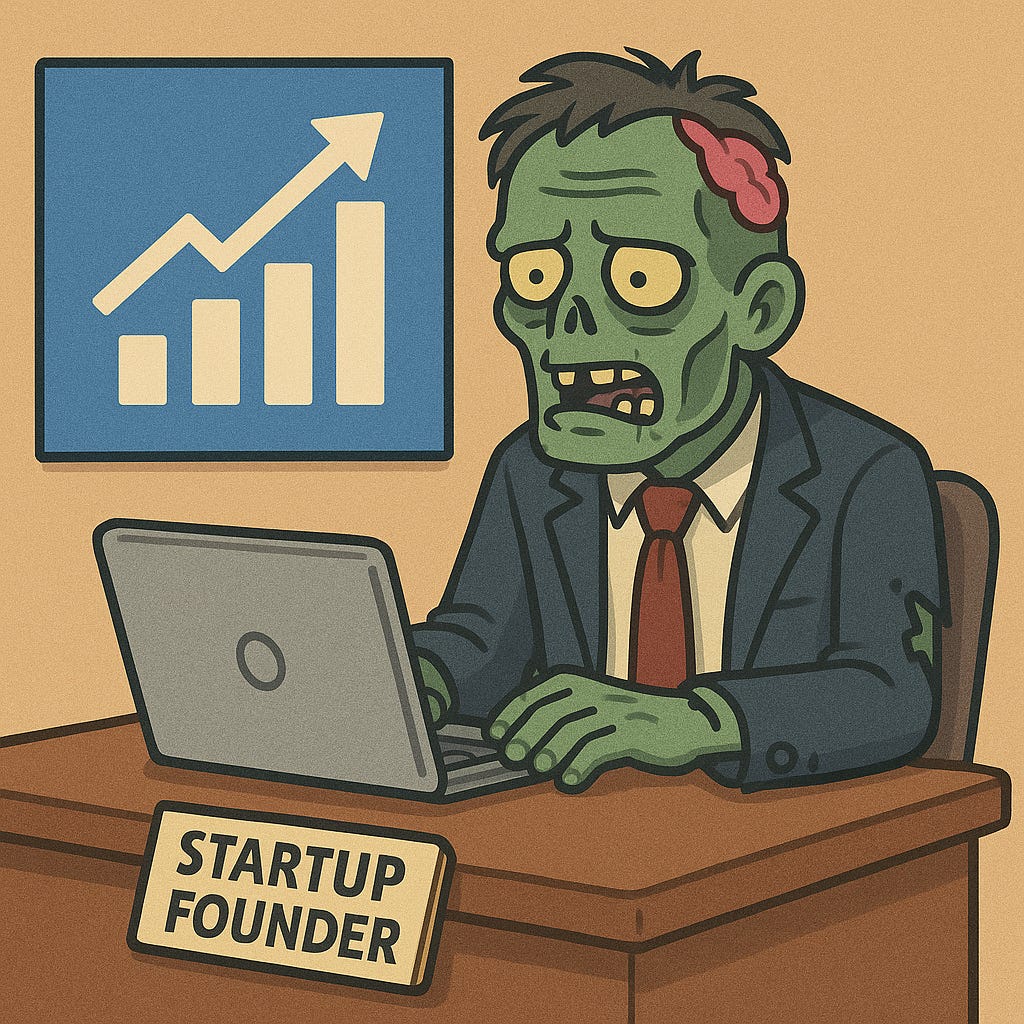- SumoGrowth AI Insights Newsletter
- Posts
- The Great AI Music Heist: How Bots and Fake Tunes Netted $10 Million in Royalties
The Great AI Music Heist: How Bots and Fake Tunes Netted $10 Million in Royalties
PLUS: The Staggering AI Cash Surge — and the Rise of the ‘Zombiecorn’
Top AI News, Trending AI Tools, and Business Automation Tips
Sponsored by Extendly - Launch your own AI Agency within 12 days 👀
The Great AI Music Heist: How Bots and Fake Tunes Netted $10 Million in Royalties

In a landmark case shaking up the music industry, a North Carolina musician has been charged in the first AI-driven streaming fraud case in the United States, accused of pocketing over $10 million in royalties through a sophisticated scheme involving AI-generated songs and bot-driven streams. Michael Smith, a 52-year-old from Cornelius, was arrested in September 2024, facing charges of wire fraud, wire fraud conspiracy, and money laundering conspiracy, each carrying a potential 20-year prison sentence.
From 2017 to 2024, Smith allegedly masterminded a scam that exploited the streaming economy. Prosecutors say he collaborated with a music promoter and the CEO of an AI music company to produce hundreds of thousands of AI-generated tracks with quirky names like “Zygotes” and “Calorie Screams.” These songs, uploaded to platforms like Spotify, Apple Music, Amazon Music, and YouTube Music, were streamed billions of times—not by fans, but by thousands of bot accounts Smith controlled. Using custom software, he orchestrated a “bot army” to play these tracks nonstop, racking up royalties while evading detection by spreading streams across many songs to avoid suspicious spikes.
The scheme wasn’t just about tech trickery. Smith, who had ties to industry heavyweights like Snoop Dogg and RZA, allegedly used his music industry know-how to game the system. His former collaborator, Raleigh Hay, claims he was duped into working with Smith, only later discovering the scale of the fraud. “It was like finding out your business partner was running a secret empire,” Hay told WIRED. The indictment also notes Smith’s attempts to dodge anti-fraud measures, with emails revealing his strategy to “get a TON of songs fast” to outsmart platform safeguards.
This case exposes a darker side of the AI music boom. While AI tools democratize music creation, they also open doors to fraud, siphoning royalties from genuine artists. A 2021 study by France’s National Music Center estimated 1 to 3 billion fake streams occurred industry-wide, highlighting the scale of the problem. Streaming platforms, including Spotify, have since tightened policies, with measures like penalty fees and track removals, but the battle against artificial streams continues.
Smith has pleaded not guilty, and his attorney declined interviews. Meanwhile, the music industry is reeling, with experts warning that such scams undermine artists and distort platform algorithms. As AI music floods platforms—Deezer estimates 10% of daily uploads are AI-generated—the case raises urgent questions about fairness and authenticity in the digital age. Will this be a wake-up call for streaming giants, or just the opening act of a larger AI-fueled fraud saga?
Use Extendly to launch a new AI agency with a 12 day bootcamp. Includes webinars, group onboarding calls, implementation sessions, and more. Click HERE to learn more!
The Staggering AI Cash Surge — and the Rise of the ‘Zombiecorn’

In a whirlwind of investment fervor, AI startups are swimming in cash, with venture capital flooding the sector like never before. In 2024, global AI funding skyrocketed to $75.8 billion, a 37% leap from the previous year, according to Crunchbase data. The U.S. alone saw $48 billion poured into AI ventures, fueled by heavyweights like OpenAI, which raised a jaw-dropping $6.6 billion at a $157 billion valuation, and xAI, securing $6 billion to challenge the AI elite. But it’s not just the giants; early-stage startups are also cashing in, with seed and Series A rounds making up 40% of deals.
Yet, beneath the glitz, a new breed of startup has emerged: the “zombiecorn.” These are AI unicorns—valued at $1 billion or more—that are struggling to innovate or grow despite their massive valuations. Think high burn rates, bloated teams, and products that don’t quite hit the mark. Analysts warn that up to 30% of AI unicorns could be zombiecorns, propped up by hype but lacking sustainable business models. As investor scrutiny tightens, these firms face pressure to deliver real-world impact or risk fading into obscurity.
Meanwhile, the AI gold rush is reshaping markets. Generative AI dominates, with 60% of funding flowing to tools for content creation, coding, and automation. Healthcare and finance are hotbeds for AI innovation, with startups like Anthropic and Databricks pushing boundaries. But as valuations soar, so do expectations. Will the AI boom sustain its momentum, or are we witnessing the rise of a zombiecorn apocalypse?
Get an AI team to handle inbound and outbound calls for your business using SumoGrowth. Never lose out on a lead again and boost booked appointments by 30%!
Click HERE to book a call today!
Other Top AI News Today
Nvidia's New AI and Robotics Announcements at Computex 2025: Nvidia CEO Jensen Huang unveiled new AI-based technologies, including humanoid robotics and the NVLink Fusion program for semi-customizable semiconductors to enhance AI infrastructure. This move aims to maintain Nvidia’s leadership in AI computing, despite challenges like semiconductor tariffs and export controls. Partnerships with companies like Qualcomm, MediaTek, and Marvell Technology were highlighted, expanding Nvidia’s AI ecosystem.
Microsoft Integrates xAI’s Grok 3 into Azure: Microsoft announced that Grok 3 and Grok 3 mini, developed by Elon Musk’s xAI, are now available on its Azure AI Foundry platform. This integration broadens Microsoft’s AI marketplace, offering more options for cloud-computing users.
Google I/O 2025 Highlights AI Advancements: Google’s developer conference, Google I/O, began today in Mountain View, showcasing updates to its Gemini AI model, including a potential new Gemini Ultra model and possible new subscription tiers (Premium Plus and Premium Pro). Google is also expected to discuss Project Astra for multimodal AI apps and Project Mariner for web-navigating AI agents.
GIGABYTE Showcases AI Solutions at Computex 2025: GIGABYTE is presenting full-stack AI solutions at Computex, focusing on cloud, data center, edge, and application innovations. Their offerings include AI-accelerated motherboards and GPUs, emphasizing local model optimization with tools like AI TOP Utility.
Indian Healthcare AI Startup Qure.AI Plans IPO: Qure.AI, an Indian healthcare AI company, announced plans for an IPO within two years, leveraging its AI-driven diagnostic tools to expand globally. This reflects growing interest in AI applications in healthcare.
Watch AI voice demo calls to learn how to sell AI phone solutions to business owners. Get access to prompts, AI tools list, AI playbook, and more.
Click HERE to watch today!
Trending AI Tools Today
Cleo is the AI assistant that's helped 6 million people avoid their overdraft, build credit, and budget better. You can even borrow payday cash advances. Click HERE to get $20.
Amie turns meeting notes into automated workflows. Handle meetings, summaries, todos and emails with your AI personal assistant.
eSelf’s no-code studio lets you create expressive, human-like AI avatars that serve as tutors, reps, and more. Multilingual and LLM-agnostic, eSelf delivers the fastest interactions on the market — powered by real-time visuals and expressive AI.
Overlap AI is an agent that edits videos, styles captions, and automatically posts for you. Build an agentic workflow, drop in a link or file, get perfect clips, and instantly upload to TikTok, Reels, Shorts, and X. Try it out for free today!
Run cold email campaigns using Instantly and get more booked meetings for your business. Includes AI email warmups and verified B2B leads database.
Click HERE to get a FREE trial today!
Business Tip of the Day
Harnessing AI for Music Creation: A Business Automation Tip for Aspiring Creators
In today’s fast-paced digital economy, AI is revolutionizing creative industries, and music production is no exception. For entrepreneurs and small business owners looking to diversify revenue streams, using AI to create music offers a low-cost, high-efficiency way to produce original tracks, streamline workflows, and generate royalties. Platforms like Suno.com are leading the charge, empowering anyone—musician or not—to craft professional-quality songs in minutes. Here’s how to leverage AI music tools for business automation and turn your creations into a profitable venture.
Why AI Music Creation?
AI music generation tools like Suno.com use advanced algorithms to compose songs based on user inputs, such as genre, mood, or lyrics. This eliminates the need for expensive studio equipment, session musicians, or years of musical training. For businesses, this means faster content creation for marketing campaigns, social media, or even standalone music products. Whether you’re producing background tracks for YouTube videos, jingles for ads, or full albums for streaming, AI reduces production time and costs dramatically. Suno.com, for instance, allows users to generate songs by simply typing a prompt or selecting parameters, delivering studio-ready tracks in genres from pop to classical.
Getting Started with Suno.com
To begin, sign up for Suno.com’s free tier, which offers limited song generation, or opt for a Pro or Premier plan (starting at $10/month, based on web information) for higher quotas and commercial rights. Input a prompt—say, “upbeat electronic dance track with motivational lyrics”—and Suno’s AI will generate a fully arranged song, complete with vocals if desired. You can tweak lyrics, adjust tempo, or layer instruments to suit your brand’s needs. The platform’s intuitive interface makes it ideal for non-musicians, while its API allows tech-savvy businesses to automate song creation for large-scale projects, like generating unique background music for thousands of social media clips.
Turning AI Music into Royalties
Once you’ve created your tracks, the next step is monetizing them. Here’s how to sell your AI-generated music and earn royalties:
Secure Commercial Rights: Ensure your Suno subscription includes commercial usage rights (available with paid plans). This grants you ownership to distribute and monetize your tracks.
Distribute to Streaming Platforms: Use digital distribution services like DistroKid, TuneCore, or CD Baby to upload your songs to Spotify, Apple Music, YouTube Music, and others. These platforms charge a small fee or percentage but handle global distribution, ensuring your music reaches major streaming services.
Register with a PRO: Sign up with a Performance Rights Organization (PRO) like ASCAP or BMI to collect royalties whenever your music is streamed, performed, or used commercially. This is critical for long-term revenue, as streaming royalties can accumulate over time.
Market Your Music: Promote your tracks on social media, X, or through content creators who need royalty-free music. Offer your songs on marketplaces like AudioJungle or Pond5 for licensing to businesses, filmmakers, or YouTubers.
Diversify Revenue Streams: Beyond streaming, license your AI-generated music for ads, podcasts, or video games. Suno’s high-quality output makes it viable for professional use, and licensing deals can yield one-time payments or recurring royalties.
Automation and Scalability
The real business advantage lies in automation. By scripting Suno’s API, businesses can generate hundreds of tracks tailored to specific niches, like “lo-fi study music” or “cinematic trailer scores,” and automate uploads to distribution platforms. This creates a passive income pipeline with minimal ongoing effort. However, beware of oversaturation—focus on unique, high-quality tracks to stand out. Also, ensure compliance with platform policies to avoid issues like those in the recent AI streaming fraud case, where bots artificially boosted streams.
The Bottom Line
AI music tools like Suno.com democratize music production, making it a powerful tool for business automation. By creating original tracks, distributing them strategically, and leveraging licensing opportunities, entrepreneurs can tap into the $30 billion global music streaming market (per 2024 estimates). With minimal upfront costs and scalable workflows, AI music creation is a smart, creative way to boost your business’s revenue stream.
Want to grow your Linkedin network to get more clients? Use HeyReach for automated Linkedin outreach campaigns. Click HERE for a FREE trial today!
Podcast:
Want to listen to our newsletter on the go? Click HERE
Want to advertise to our newsletter? Contact us at [email protected]
Cheers,
Darius @ SumoGrowth